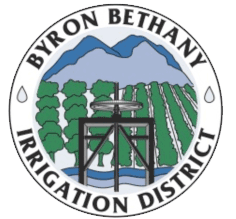Byron, CA (June 11, 2021) – Legal action initiated by a coalition of California environmental interest groups could disrupt reliable water supplies for nearly 100 water purveyors from Shasta Lake to Sacramento, across the Central Valley, Silicon Valley, and beyond.
In a recent court filing, Restore the Delta, Planning and Conservation League and the Center for Biological Diversity, who had already sued the United States Bureau of Reclamation (Reclamation) and the United States Department of Interior, named nearly 100 Central Valley Project (CVP) contractors, including the Byron-Bethany Irrigation District (BBID), as defendants. The complaint seeks to invalidate, without cause, CVP water contracts that are foundational to California’s water supply, especially for its agricultural industry that provides more than half of the nation’s fruits, nuts, and vegetables.
The heart of the plantiffs’ case is the “conversion” of CVP contracts from “long-term” or “interim renewal” contracts, which Reclamation would renew upon expiration, to permanent contracts. BBID acted in good faith utilizing a provision in federal legislation known as the WIIN Act to convert its CVP contracts to repayment contracts, carrying a perpetual term. The purpose of the conversion simply allows BBID, and other CVP contractors, to immediately repay Reclamation a debt obligation; it does not alter the operation of the CVP or the quantity of water that a contractor is entitled to receive. BBID’s conversion was a common-sense, financially prudent move benefitting the District’s agricultural growers in San Joaquin County.
So, what’s the sticking point? Environmental interests argue Reclamation was legally obligated to perform an intensive ecological review before it converted BBID’s and other contractors’ CVP contracts. And because Reclamation didn’t do so, the complaint argues, those contracts violate the National Environmental Protection Act (NEPA) and the Endangered Species Act (ESA).
Here’s the reality. The WIIN Act directs Reclamation to execute these contract conversions when a contractor requests it. In other words, federal law mandates these contract conversions. In any event, the prospect of a lengthy, expensive, and ultimately redundant review process (when other than the method of payment, the substantive contract obligations do not change) is a poor use of taxpayer resources.
The complaint further argues that the new contracts essentially guarantee a CVP contractor its full supply. In fact, prior to execution of the new contracts, Reclamation rarely provided a 100% allocation to its CVP contractors due to a host of hydrological, regulatory, and environmental factors. For example, BBID endured three consecutive years of a 0% allocation during the last drought. This reality will not change with execution of the new contracts. This year, under the new repayment contracts, BBID’s initial 5% allocation for irrigation was first suspended, and now eliminated altogether in the wake of our second straight dry winter. This year, water for municipal and industrial purposes has been drastically reduced from 55% to 25%.
We all recognize the great challenges ahead. Instead of lawsuits like these, we must focus on finding common ground and funding meaningful, multi-benefit solutions that balance the beneficial uses of California’s water supply and protect our environmental resources in the face of of diminishing supplies and increasing demand.

